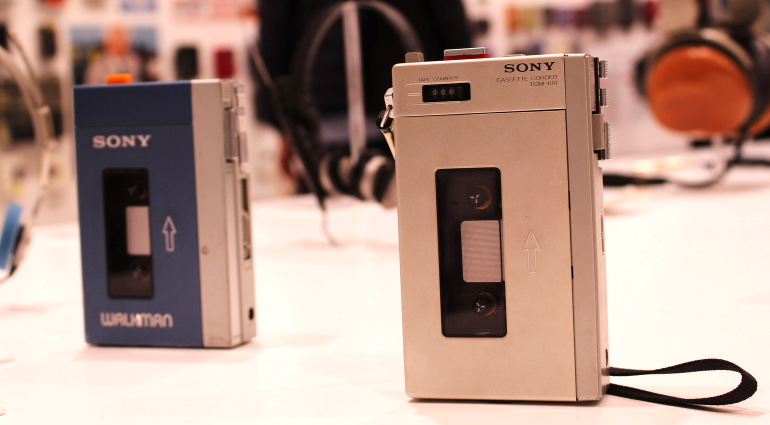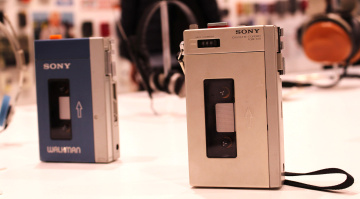On July 1, 1979, the Sony Walkman went on sale for $150. No one could have predicted its meteoric success at the time. But the Walkman became one of the most influential and iconic gadgets of all time. Whatever came after it, the Discman, Minidisk, or even the iPod, would not have existed without the portable cassette player. Today, we celebrate its birthday.
History of Sony Walkman: Inspired by Andreas Pavel
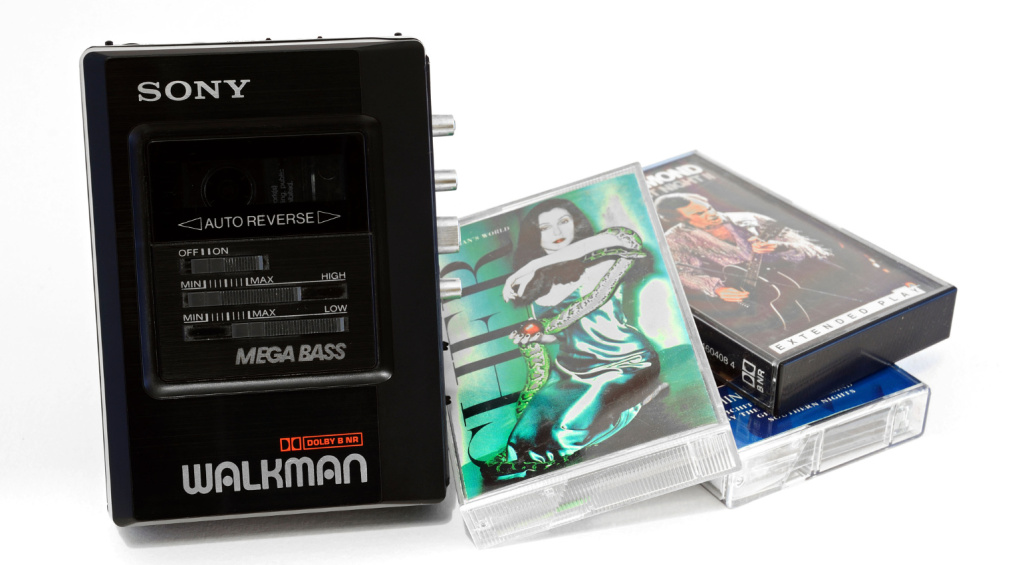
For most of us who grew up with the Sony Walkman, it’s almost impossible to imagine a world without one—even if you didn’t own one. But its origin story isn’t the most romantic one. In fact, it can be argued that Sony, at the very least, took some heavy inspiration from German inventor Andreas Pavel.
In the seventies, Pavel developed a portable HiFi system, and he presented the prototype to both Sony and Philips at a trade fair in 1976 in Düsseldorf, Germany. Both companies declined to work with him at the time. The following year, Pavel registered patents for a portable Hi-Fi system first in Italy (1977), then in Germany, the US, and Japan (all in 1978).
As for the actual development of the Sony Walkman at the company, Sony’s charismatic CEO at the time, Masaru Ibuka, demanded a portable music listening device from his engineers, as he traveled so much. Based on the existing Pressman recorder, which was portable but too heavy to carry comfortably, the team was able to create a prototype in a very short time.
From Pressman to Walkman in four months
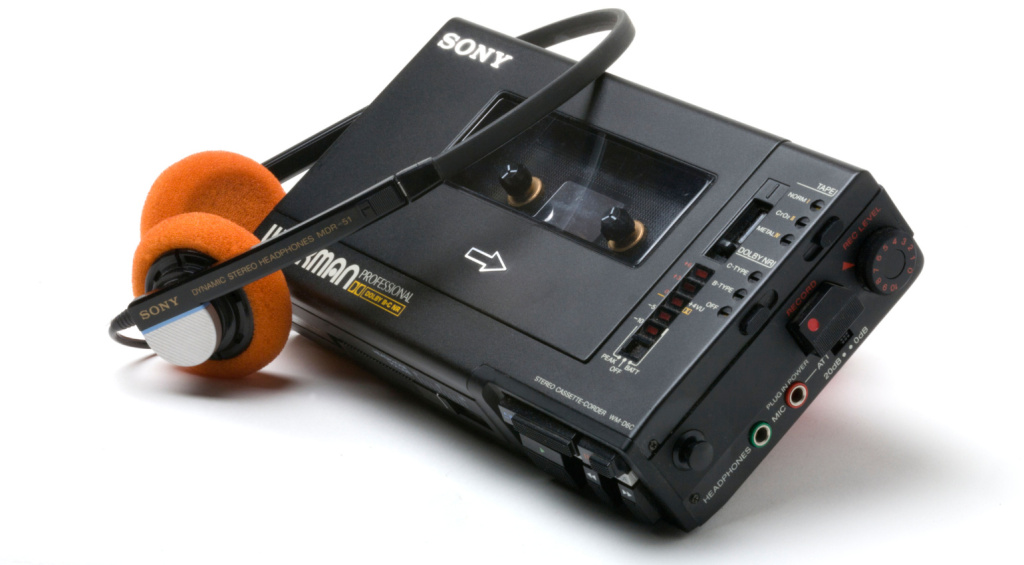
Ibuka was so impressed by the results that he demanded that his team create a version Sony could sell quickly. Within only four months, Sony’s team was able to fulfill his demand. On July 1, 1979, the Sony Walkman went on sale for $150 (about $650 in today’s money). While sales were disappointing in the first few weeks, Sony’s innovative marketing campaign that followed a month later resulted in soaring sales.
Pavel got wind of the Walkman and tried to launch his own version in Italy in 1980, the Stereobelt, to limited success. He then went on to sue Sony for patent infringement and got them to pay a licensing fee of $150.000 in 1986 for the sale of the Walkman in Germany. Pavel also sued for copyright infringement, a lawsuit that became so costly for him that he was on the brink of bankruptcy in 1989.
Pavel was ordered to pay the court costs when the lawsuit was dropped in 1996 – a mighty $3 million. When he threatened to sue again in the following years, Sony finally agreed and paid Pavel an undisclosed sum in 2004. In light of these proceedings, the “only four months” timeline of developing the Walkman does appear in a different light.
The mobile revolution – Everyone’s personal soundtrack
While the creation of the Walkman might not seem like the most glamorous story, it still resulted in one of music tech’s biggest success stories. Over 400 million units have been sold until today, with over 200 million Walkman units of the original tape-playing kind. Before the Walkman, mixtapes, personal soundtracks, and listening on the go for hours at a time were pretty much unheard of.
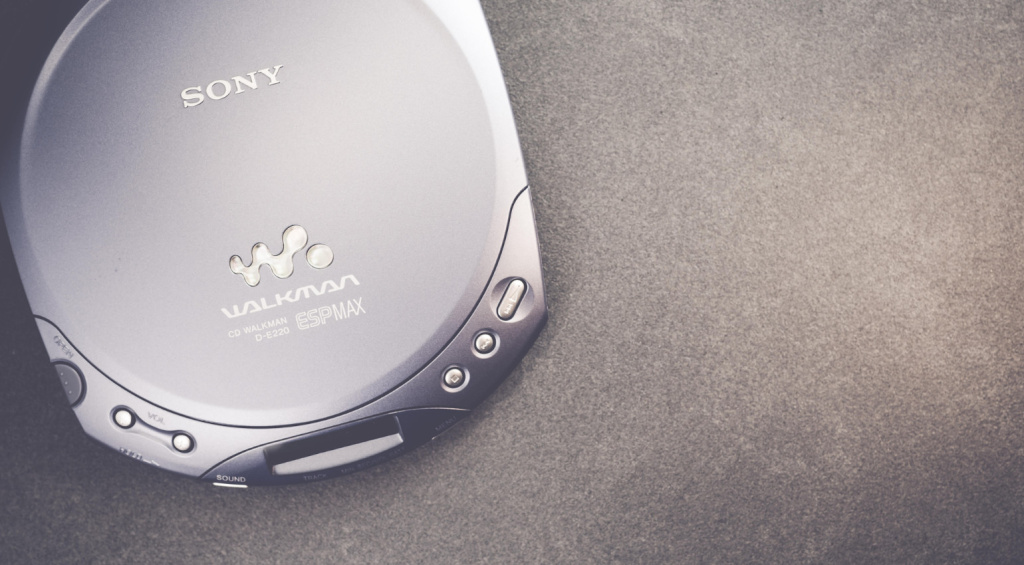
While mixtapes did exist before the portable cassette player, it was only when you could take your “15 Songs to Watch the Sunset to” tape on the road that they became widespread. With the demise of cassettes in the mid-80s, Sony launched various portable music players, like the Discman or its unsuccessful but highly popular among audiophiles format Minidisk in the coming years. Nothing ever came close to the Walkman.
But these days, cassettes are making a comeback. It’s more environmentally friendly than vinyl and has a “sound.” The Lo-Fi revolution is deeply rooted in the aesthetic of broken, warbled cassettes. Various companies have released offshoots of the Walkman in the last few years to jump on the bandwagon. Sony offers various Walkman models these days, focusing heavily on audiophile music players. But none of them play cassettes. Happy birthday, Walkman!

